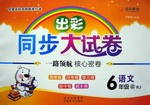题目内容
“It hurts me more than you”, and “This is for your own good” These are the statements my mother used to make years ago when I had to learn Latin, clean my room, stay home and do homework.
That was before we entered the permissive period in education when we decided it was all right not to push our children to do their best in school. The schools and the educators made it easy on us. They thought that it was all right to be parents who take a let-alone policy. We stopped making our children do homework. We gave them calculators, turned on the television, left them to the teachers and went on holidays.
Now teachers, faced with children who have been developing at their own pace for the past 15 years, are realizing we’ve made a terrible mistake. One such teacher is Sharon Klompus who says of her students-so passive-and wonders what happened. Nothing was demanded of them, she believes. Television, says Klompus, contributes to children’s passivity. “"We’re talking about a generation of kids who’ve never been hungry. They have learned somebody will always do it for them. Instead of saying “go look it up”, you tell them the answer. It takes great energy to say no to kids.”
Yes, it does. It takes energy and it takes work. It’s time for parents to end their holidays and come back to work. It’s time to take the car away, to turn TV off, to tell them it hurts you more than them but it’s for their own good. It’s s time to start telling them no again.
1.We learn from the passage that the author’s mother used to pay much attention to .
A.learning Latin B.teaching her child by punishment
C.avoiding spoiling her child D.school education
2.By “permissive period in education” the author means a time .
A.when children are allowed to do what they wish to
B.when calculators are left to the teachers
C.when it is easy for us to be parents
D.when it is hard for children to do their best in school.
3.Children are now becoming more inactive in study because .
A.they watch too much TV B.they have done too much homework
C.they’ve to do too many duties D.teachers are too strict with them
4.To such children as told in the passage .
A.it is easier to say no than to say yes
B.neither to say yes or to say no is easy
C.it is easier to say yes than to say no
D.neither to say yes or to say no is difficult
5.What is the author’s attitude towards the let-alone policy?
A.The author is for is
B.We don’t know yet from the present passage
C.The author is against it
D.The author is neither against or for it
CAACC

 出彩同步大试卷系列答案
出彩同步大试卷系列答案People use their mouths for many things. They eat, talk, shout and sing. They smile and they kiss. In the English language, there are many expressions using the word“mouth”.
For example, if you say bad things about a person, the person might protest and say“Do not bad mouth me. ”Sometimes, people say something to a friend or family member that they later regret because it hurts that person’s feelings. Or they tell the person something they were not supposed to tell. The speaker might say:“I really put my foot in my mouth this time. ”If this should happen, the speaker might feel down in the mouth. In other words, he might feel sad for saying the wrong thing.
Another situation is when someone falsely claims another person said something, the other person might protest,“I did not say that . Do not put words in my mouth. ”
Some people have lots of money because they were born into a very rich family. There is an expression for this, too. You might say such a person“Born with a silver spoon in his mouth. ”This rich person is the opposite of a person who lives from hand to mouth. This person is very poor and only has enough money for the most important things in life, like food.
Parents might sometimes withhold(拒给)sweet food from a child as a form of punishment for saying bad things. For example, if a child says things she should not say to her parents, she might be described as a mouthy child. The parents might even tell the child to stop mouthing off.
But enough of all this talk, I have been running my mouth long enough.
【小题1】In what kind of situation will a person say“Do not bad mouth me. ”?
| A.When he feels down. | B.When he feels regretful. |
| C.When he is spoken ill of. | D.When he feels proud. |
| A.Do not bad mouth me. |
| B.I really put my foot in my mouth this time. |
| C.Do not put words in my mouth. |
| D.Stop mouthing off. |
| A.he is badly-off | B.he is hard-working |
| C.he is well-off | D.he has enough to eat |
| A.I have run a long way. | B.I have been a mouthy person. |
| C.I have learned a lot. | D.I have talked too much. |